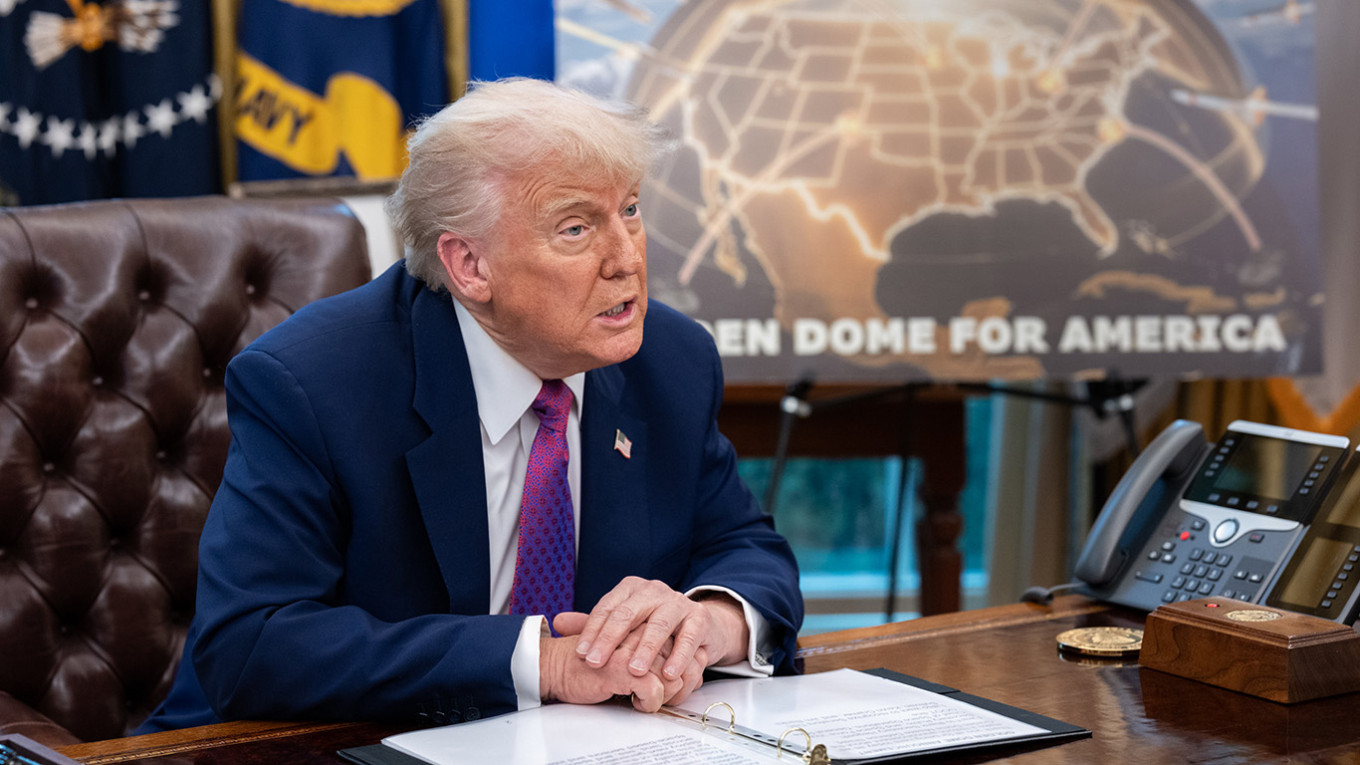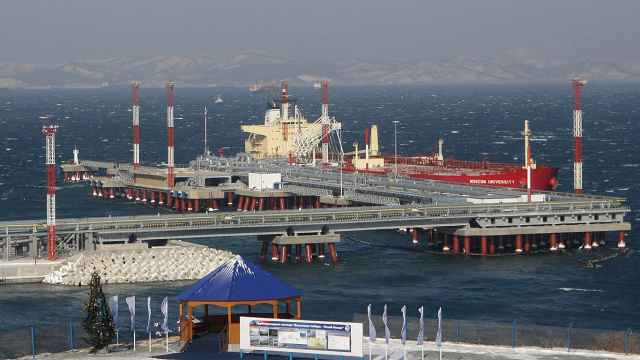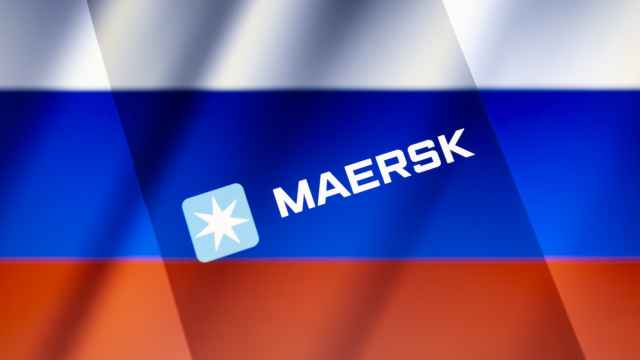In a recent call with Vladimir Putin, Donald Trump made one thing clear: once the war in Ukraine is over, Washington should focus on “large-scale trade” with Russia.
Forget sanctions. Forget holding Russia accountable for its war crimes. Trump’s post-war vision is all about business. This dangerous shift toward appeasement threatens Western unity and exposes companies to serious risks.
Trump’s call for “large-scale trade” is nothing new. Under his presidency, U.S. foreign policy is on sale to the highest bidder, with business deals, like securing a luxury airplane from Qatar, used to grease the wheels of diplomacy and prioritize profit over principle.
Now, this approach takes on a more troubling dimension, especially when contrasted with the European Union’s strategy. While Brussels remains firm, using sanctions as a clear message that aggression has consequences, Trump’s plan is the opposite: to ditch the pressure and turn Russia into a trading partner once the dust settles.
This is where the risks start piling up. While Trump’s trade-first mentality might sound appealing in theory — trade equals ties, ties equal stability — he’s ignoring one major problem: Russia is the aggressor. The Kremlin has invaded Ukraine, carpet-bombed cities into rubble, and violated every international norm in the book. Rolling out the red carpet for trade while Russia is still on the warpath sends a dangerous message: aggression pays off.
European leaders, poised to impose their 17th round of sanctions after Putin’s dismissal of a ceasefire, now face a new challenge. They must move forward without U.S. backing, as Trump’s phone call with Putin saw him backtrack on previous empty threats of “large-scale” sanctions.
If the U.S. were to go along with Trump’s plan, we could see a rush of American companies looking to cash in on Russia’s vast natural resources, energy projects and manufacturing needs. Energy deals would be the obvious starting point. But there could be a wider re-engagement, from arms sales to tech exchanges.
The Kremlin’s latest attempt to lure Trump into building a Trump Tower in Moscow and restart direct U.S. flights is a clear attempt to normalize relations and attract American investment. It’s also a brazen effort to exploit Trump’s past business ties to bypass sanctions and global scrutiny.
U.S. businesses are already showing renewed interest in engaging with the Russian market. Several American companies are reportedly planning to attend next month’s St. Petersburg International Economic Forum, Putin’s version of Davos.
The Kremlin is eager to capitalize on this, with figures like Robert Agee from the American Chamber of Commerce in Russia touting the forum as vital to rebuilding ties.
Meanwhile, U.S. investment banker Stephen Lynch is pushing to revive the controversial Nord Stream 2 pipeline. With the project under sanctions, he needs special approval from Washington to even discuss a potential purchase. He filed his request in early 2024, but it is still pending. However, with Trump now advocating for closer trade ties with Russia, Lynch’s chances of approval may be improving.
But hold up. Lynch and other speculators could be walking blindly into a minefield. The EU, which remains committed to isolating Russia, will likely keep sanctions in place, even if the U.S. backs off. That means navigating a maze of regulations, not to mention the risk of secondary sanctions for those who do business with Moscow.
Then there is the public image problem. Trade with a regime that has been condemned globally for its war crimes? That is a PR disaster waiting to happen. Consumers are increasingly aware of the companies they support and aligning with a pariah state could blow up a brand’s reputation in Europe and beyond.
And we cannot ignore the corruption angle. Russia’s government is one of the most opaque and corrupt in the world. When countries like the U.S. start trading with Putin, it is not just about exchanging goods. It is about facilitating a system that is ripe for shady backdoor deals. Companies could find themselves caught in the crossfire of illicit financial flows, risking fines, scandals or worse.
Then there is the bigger geopolitical picture. A post-war trade deal with Russia sends the wrong message: international law does not matter and aggressive behavior pays off. The West would be undermining its own position, rewarding Putin’s aggression, and potentially opening the door for future autocrats to follow suit.
Trump’s call for a “trade deal” with Russia is not only misguided but also dangerous. It is a recipe for destabilisation, not just in Eastern Europe, but in global trade. While the business community may salivate at the thought of access to a vast Russian market, they should proceed with caution due to the risks of sanctions, reputational damage and supporting a corrupt regime.
The Trump administration’s obsession with trade over sanctions on Russia mirrors its misguided approach to Gaza, where plans to build luxury condos take precedence over addressing a deepening humanitarian crisis. Just as Trump seeks to reopen business ties with Russia despite its war crimes in Ukraine, he has proposed crass real estate development in Gaza while turning a blind eye to Palestinian suffering and genocide by Israel.
Both strategies are driven by economic opportunism, sidelining morality and accountability for short-term profit, revealing a troubling pattern of appeasing aggressors at the expense of long-term peace and justice.
Any foreign investors considering returning to Russia should listen to the salutary advice of Michael Calvey, the U.S. private equity superstar.
Calvey and his team at Baring Vostok made shrewd early bets in early Russian internet ventures, holding on even after the first tech boom imploded in the early 2000s. It paid off handsomely. Calvey once told me that they reaped an astonishing 500-fold return on their investment in the Russian tech giant Yandex.
A thoughtful man who speaks fluent Russian, Calvey believed that adhering to both the written and unwritten rules of doing business in Russia would keep him safe, but that proved to be a false hope.
It all started to go wrong for Calvey on Valentine’s Day in 2019, when a dispute with a co-investor led to his arrest on spurious charges of embezzling $38 million. In August 2021, a Moscow court handed Calvey a five-and-a-half-year suspended sentence in a trial that sent shockwaves through Russia’s business community.
After fleeing to Switzerland, Calvey, who chronicled his harrowing ordeal in a recently published book, predicted that some American businesses may return to Moscow.
However, he is now adamant he will never invest in Russia again. “You may hope you’re not going to get stepped on the head, but ultimately it could happen at any time,” he recently remarked, underscoring the unpredictable risks of doing business there.
A Message from The Moscow Times:
Dear readers,
We are facing unprecedented challenges. Russia's Prosecutor General's Office has designated The Moscow Times as an "undesirable" organization, criminalizing our work and putting our staff at risk of prosecution. This follows our earlier unjust labeling as a "foreign agent."
These actions are direct attempts to silence independent journalism in Russia. The authorities claim our work "discredits the decisions of the Russian leadership." We see things differently: we strive to provide accurate, unbiased reporting on Russia.
We, the journalists of The Moscow Times, refuse to be silenced. But to continue our work, we need your help.
Your support, no matter how small, makes a world of difference. If you can, please support us monthly starting from just $2. It's quick to set up, and every contribution makes a significant impact.
By supporting The Moscow Times, you're defending open, independent journalism in the face of repression. Thank you for standing with us.
Remind me later.








